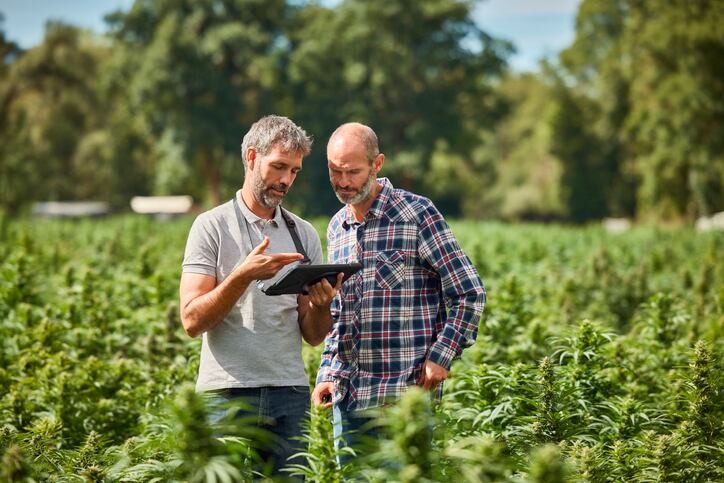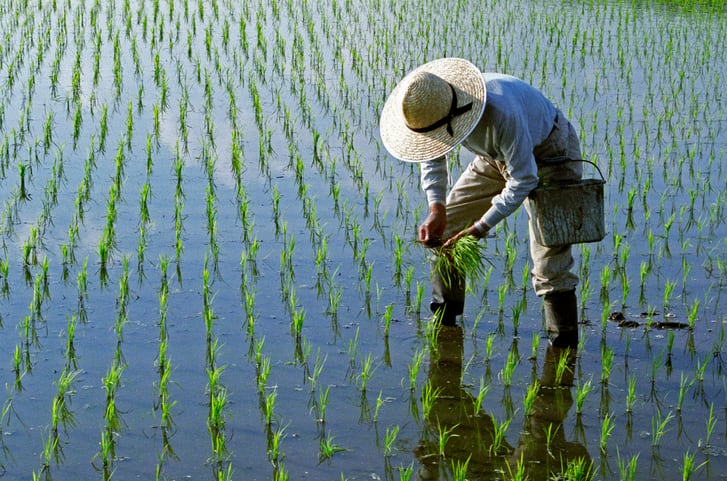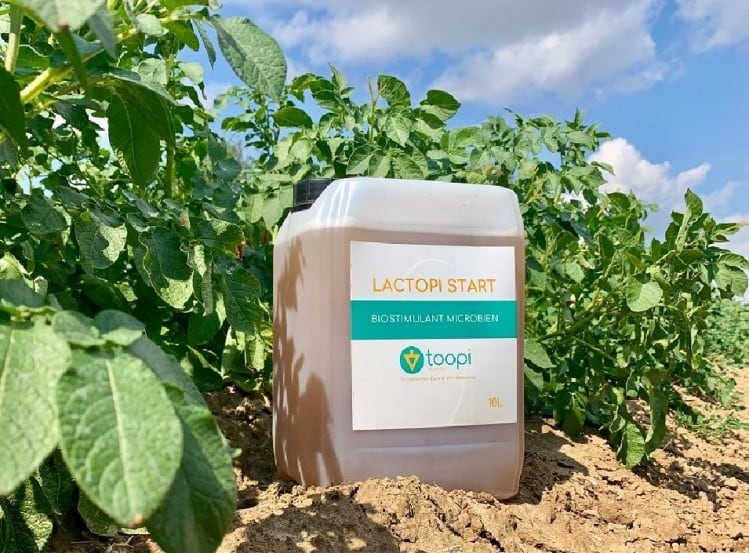The report underscores a conspicuous disparity in the distribution of financial and institutional resources, with a discernible tilt towards more traditional pillars of agricultural support. While subsidies, market interventions and direct payments command a lion's share of the funding spectrum, funds allocated to fostering agricultural knowledge and innovation remain comparatively restrained.
Data on agricultural research and development (R&D) expenditure reveals discrepancies at the sectoral level. The employment landscape in European agriculture is shifting towards a decline of 27% by 2030, driven by factors such as workforce aging and automation. This shift underscores the need for new skills, including digital proficiency and environmental management, prompting a call for a robust long-term skills agenda.
The OECD’s comprehensive analysis also notes the challenges faced by the EU’s role as a catalyst for research and innovation in agriculture, with limited resources hindering progress. It points to the farmer-led co-innovation initiative, the European Innovation Partnership for Agricultural Productivity and Sustainability (EIP-AGRI), as instrumental in bridging the gap between research and farming practice. However, it grapples with adoption challenges due to attitudinal differences among farmers.
These issues are exacerbated by a lack of funding and other resources needed to drive more robust, widespread ag-tech knowledge and innovation in the region.
The investment landscape
Agricultural R&D in the EU primarily relies on public financing and unlike in other sectors, over 90% of resources dedicated to agricultural knowledge and innovation stem from individual EU member states' budgets. Additionally, strategic investment in knowledge and innovation is fundamental for the green transformation of the EU’s agricultural sector. Public and private R&D investment remains crucial, with public funding primarily justified by the public good nature of agricultural research.
The EU and its member states planned to spend €4.45 billion on knowledge- and innovation-related measures between 2014 and 2020. From 2019 to 2021, they transferred over €100 billion annually to support the agricultural sector. However, only around 6.1% of this total support was allocated to agricultural knowledge and innovation, reflecting a relative limitation in comparison to other industries.
The financial backbone supporting knowledge and innovation in EU agriculture comprises two main streams: the Horizon Europe programme and Pillar 2 of the Common Agricultural Policy (CAP). Horizon Europe aims to stimulate both public and private investments in agricultural R&D, fostering cross-country collaborations. Meanwhile, CAP's Pillar 2 focuses on targeted measures for knowledge exchange, advice and cooperation, constituting 2.3% of CAP Pillar 2 in 2021.
At the same time, the farmer-led European Innovation Partnership for Agricultural Productivity and Sustainability (EIP-AGRI) initiative stands as the EU Commission's principal policy tool, channelling CAP and Horizon Europe funding towards bottom-up multi-actor agricultural innovation projects. This collaborative approach involves farmers, researchers and other stakeholders in a co-creation process to address practical challenges.
Horizon Europe, with a budget of €95.5 billion over a seven-year period, is identified as the main EU fund to foster agricultural research and innovation. Cluster 6 of Pillar 2, focusing on ‘Food, Bio-economy, Natural Resources, Agriculture and Environment’, is particularly relevant for agri-food research and innovation. The multi-actor approach under Horizon work programmes aims to make research and innovation outcomes more demand-driven and relevant to society.
Collaboration and cooperation
The EU provides a framework for national and regional Agricultural Knowledge and Innovation Systems (AKIS). The CAP 2023 — 2027 mandates EU Member States to enhance their strategic approach to AKIS, fostering collaboration among advisors, researchers, and CAP networks. It also underscores the importance of knowledge exchange and digitalisation in modernising agriculture.
The long-term strategy for EU agri-food innovation aligns with the European Green Deal (EGD), which outlines a transformative roadmap for the EU economy. R&D policies, explicitly mentioned in the EGD, are identified as key levers for achieving environmental, economic and social sustainability in agriculture.
At the same time, educators are recognised as key actors in disseminating sustainable practices. Higher education institutions, vocational education and training (VET) facilities and other educational providers play a crucial role in building capacities necessary for innovation adoption in agriculture.
Pillar 3 of Horizon Europe introduces the European Innovation Council (EIC) and the European Institute of Innovation and Technology (EIT). While the EIC focuses on scaling up innovative businesses, the EIT offers opportunities for education, business creation and innovation projects. EIT-Food, as part of EIT, is highlighted as a relevant innovation community for the agri-food sector.
The European Agricultural Fund for Rural Development (EAFRD) is another EU fund supporting knowledge exchange and innovation under Pillar 2 of the CAP. Rural development programmes under EAFRD target agricultural innovation with measures like knowledge transfer, advice and cooperation.
Despite the potential of these funds, the uptake of knowledge- and innovation-related measures has been slow, with respective spending rates of 45%, 27% and 30% for knowledge transfer, advice and cooperation, compared to an average 67% spending rate for the entire rural development funding stream.
Digitalisation barriers
While digitalisation has emerged as a potential solution to address productivity, sustainability and resilience challenges in agriculture, significant investments in information and communications technology (ICT) infrastructure and skills development are still required to enable widespread adoption. The lack of reliable, affordable high-speed Internet remains a barrier, emphasising the need to enhance connectivity in remote areas.
Digital technologies also offer opportunities for inclusive up-skilling of farmers but a lack of trust remains a hurdle. Addressing concerns related to data ownership, confidentiality and complexity is crucial for fostering farmers' trust in digital technologies. The report calls for tailored trust-related policies, emphasising the role of public sector extension services in enhancing farmers' understanding of digital agriculture.
In terms of funding, the inclination towards conventional support mechanisms as opposed to a more pronounced investment in cutting-edge research and transformative agricultural technologies may impede the sector's capacity to navigate contemporary challenges.
Emphasising equitability
The OECD report underscores the importance of a comprehensive policy environment to support the digital transformation of agriculture. Efforts to harmonise data collection on precision technologies aim to provide a clearer picture of the sector's digital uptake in the coming years.
In an era marked by dynamic environmental shifts, evolving consumer preferences and the importance of sustainable practices, a more equitable allocation of resources could be instrumental in steering agriculture towards resilience and adaptability.
The limited emphasis on agricultural knowledge and innovation is not merely a fiscal concern; it bears implications for the sector's long-term viability and capacity to meet changing demands. As the global agricultural landscape continues to undergo transformation, a recalibration of resource allocation in favour of knowledge-driven initiatives is imperative to fortify the EU's agricultural sector against emerging complexities.




